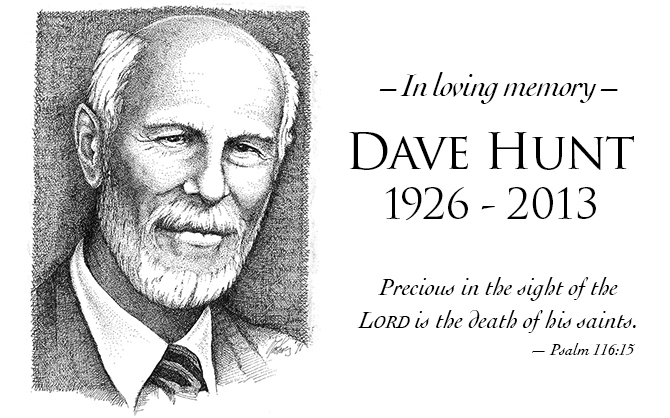The Shameful Social Gospel
September 1 2008
“For I am not ashamed of the gospel of Christ: for it is the power of God unto salvation to every one that believeth.” Romans:1:16For I am not ashamed of the gospel of Christ: for it is the power of God unto salvation to every one that believeth; to the Jew first, and also to the Greek.
For various reasons, Christians of different sorts have tinkered with “the gospel of Christ” as though it needed adjustments. Not major alterations, most will tell you, but just some minor tweaking here and there. The changes often begin by one’s declaring that there is no real change involved, simply a shift in emphasis. Yet, no matter what the rationale may be, the end result is being “ashamed of the gospel of Christ.”
To be “ashamed of the gospel” covers a number of attitudes from being totally embarrassed by it to thinking one can improve upon it a bit to make it more acceptable. One example of the former is the recent claim by an Emerging Church author that the teaching regarding Christ’s paying the full penalty for the sins of mankind through His substitutionary death on the Cross is irrelevant and viewed as “a form of cosmic child abuse.” More subtle examples include trying to make the gospel seem less exclusive, and the “softening” of the consequences from which the gospel saves mankind, such as the wrath of God and the Lake of Fire.
Prevalent among many religious leaders who profess to be evangelical Christians (i.e., Bible-believing Christians) is the promotion of a gospel that is acceptable to, and even admired by, people throughout the world. Today, the most popular form of this is the social gospel.
Although the social gospel is common to many new movements among evangelicals, it is not new to Christendom. It had its modern beginning in the late 1800s, when it developed as a way to address the various conditions in society that caused suffering among the populace. The belief was, and is, that Christianity will attract followers when it demonstrates its love for mankind. This could be best accomplished by helping to alleviate the suffering of humanity caused by poverty, disease, oppressive work conditions, society’s injustices, civil rights abuses, etc. Those who fostered this movement also believed that relief from their conditions of misery would improve the moral nature of those so deprived.
Another driving force behind the introduction of the social gospel was the eschatological, or end times, views of those involved. Nearly all were amillennialists or post-millennialists. The former believed that they were living in a (symbolic thousand-year) time period in which Christ was ruling from heaven, Satan was bound, and they were God’s workers appointed to bring about a kingdom on earth worthy of Christ. Post-millennialists also believed they were in the Millennium, and their goal was to restore the earth to its Eden-like state in order for Christ to return from Heaven to rule over His earthly kingdom.
The social gospel, in all of its assorted applications, helped to produce some achievements (child labor laws and women’s suffrage) that have contributed to the welfare of society. It became the primary gospel of liberal theologians and mainline denominations throughout the 20th century. Although its popularity alternately rose and fell as it ran its course, it was often energized by the combination of religion and liberal politics, e.g., Martin Luther King Jr. and the civil rights movement. Midway through the last century and later, the social gospel influenced developments such as the liberation theology of Roman Catholicism and the socialism of left-leaning evangelical Christians. It is in this present century, however, that the social gospel has gotten its most extensive promotion. Two men, both professing to be evangelicals, have led the way.
George W. Bush began his presidency by instituting the White House Office of Faith-Based and Community Initiatives. His objective was to provide government funding for local churches, synagogues, mosques, and other religious ministries that were providing a social service to their community. Bush believed that programs run by “people of faith” could be at least as effective as secular organizations in helping the needy, and perhaps more so because of their moral commitment to “love and serve their neighbor.” As he prepares to leave office, he has declared that he considers his Faith-Based program to be one of the foremost achievements in his tenure as president. Presidential candidate Barack Obama stated that, should he win the election, he will continue the Faith-Based and Community Initiatives.
Rick Warren, the mega-selling author of The Purpose-Driven Church and The Purpose-Driven Life , has taken the social gospel to where it’s never been before: not only worldwide but into the thinking and planning of world leaders. Warren credits business management genius Peter Drucker with the basic concept that he is executing. Drucker believed that the social problems of poverty, disease, hunger, and ignorance were beyond the capability of governments or multinational corporations to solve. To Drucker, the most hopeful solution would be found in the nonprofit sector of society, especially churches, with their hosts of volunteers dedicated to alleviating the social ills of those in their community.
Warren, acknowledging the late Drucker as his mentor for 20 years, certainly learned his lessons. His two Purpose-Driven books, translated into 57 languages and selling a combined 30 million copies, reveal the game plan for what Drucker had envisioned. Warren had local churches implement this vision from his books through his enormously popular 40 Days of Purpose and 40 Days of Community programs. To date, 500,000 churches in 162 nations have become part of his network. They form the basis for his Global P.E.A.C.E. Plan.
What is his P.E.A.C.E. plan? Warren’s presentation of the plan to the church is found at www.thepeaceplan.com. On video, he identifies the “giants” of humanity’s ills as spiritual emptiness, self-centered leadership, poverty, disease, and illiteracy, which he hopes to eradicate by (P)lanting churches, (E)quipping leaders, (A)ssisting the poor, (C)aring for the sick, and (E)ducating the next generation.
Warren uses the analogy of a three-legged stool to illustrate the best way to slay these giants. Two of the legs are governments and business, which have thus far been ineffective, and, just like a two-legged stool, cannot stand. The third very necessary leg is the church. “There are thousands of villages in the world that have no school, no clinic, no business, no government—but they have a church. What would happen if we could mobilize churches to address those five global giants?” Warren reasons that since there are 2.3 billion Christians worldwide, they could potentially form what President Bush has termed a vast “army of compassion” of “people of faith” such as the world has not yet experienced.
In addition to the Christian version , Warren has an expanded inclusive version of the P.E.A.C.E. plan that has drawn support and praise from political and religious leaders and celebrities worldwide. At the 2008 World Economic Forum, he declared, “The future of the world is not secularism, but religious pluralism….” Referring to the ills besetting the world, he declared, “We cannot solve these problems without involving people of faith and their religious institutions. It isn’t going to happen any other way. On this planet there are about 20 million Jews, there are about 600 million Buddhists, there are about 800 million Hindus, there are over 1 billion Muslims, and there are 2.3 billion Christians. If you take people of faith out of the equation, you have ruled out five-sixths of the world. And if we only leave it up to secular people to solve these major problems, it isn’t going to happen” (http://www.youtube.com/watch?v=rGytW4yh0C8 ).
To accommodate working with people of all faiths Warren has revised the “P” in his P.E.A.C.E. from “planting evangelical churches” to “(P)romoting reconciliation” and the “E” from “equipping [church] leaders” to “(E)quipping ethical leaders.” Warren has elsewhere acknowledged his practical shift to pluralism: “Who’s the man of peace in any village—or it might be a woman of peace—who has the most respect?…They don’t have to be Christian. In fact, they could be Muslim, but they’re open and they’re influential, and you work with them to attack the five giants [to which he has added global warming].” He quotes a secular leader who affirms what he’s doing: “I get it, Rick. Houses of worship are the distribution centers for all we need to do.”
Warren has joined the advisory board of Faith Foundation, established by former British prime minister and recent Roman Catholic convert Tony Blair. The Foundation’s goal is to further understanding and cooperation among the six leading faiths: Christian, Muslim, Hindu, Buddhist, Sikh, and Jewish. How does the Cross fit into this ecumenical gathering? It doesn’t. Critical to achieving that ecumenical goal is the elimination of the problem of exclusive religions, a concern articulated by one of the World Economic Forum panelists: “There are some religious leaders in different religious faiths who, in seeking to affirm their own faith and its authenticity and legitimacy…deny other people their faith with its legitimacy and authenticity. I don’t think we can keep going like this without…spawning the kind of hatred we are all here to try and solve. I think it’s up to us to hold the clergy’s feet to the fire of whatever faith. That we insist that we affirm what is beautiful in our own traditions while at the same time refusing to denigrate other faith traditions by suggesting that they are illegitimate, or consigned to some kind of evil end.”
The Bible declares all the religions of the world to be “illegitimate” and “consigned” not to “some kind of evil end” but to their just end. Only belief in the biblical gospel saves humanity: “Neither is there salvation in any other: for there is none other name [Jesus Christ] under heaven given among men, whereby we must be saved;…He that believeth on the Son hath everlasting life: and he that believeth not the Son shall not see life; but the wrath of God abideth on him” (Acts:4:12Neither is there salvation in any other: for there is none other name under heaven given among men, whereby we must be saved.; John:3:36He that believeth on the Son hath everlasting life: and he that believeth not the Son shall not see life; but the wrath of God abideth on him.).
The history of the social gospel is, in nearly every case, a sincere attempt by Christians to do those things that they believe will honor God and benefit humanity. In every case, however, the practical working out of “benefiting humanity” has compromised biblical faith and dishonored God. Why is that? God’s Word gives no commission to the church to fix the problems of the world. Those who attempt to do so are starting out under a false premise, “…a way which seemeth right unto a man ,” not God’s way. So where can it go from there? “The end thereof are the ways of death,” i.e., destruction (Proverbs:14:12There is a way which seemeth right unto a man, but the end thereof are the ways of death.). Furthermore, the problems of the world are all symptoms . The root cause is sin.
What percentage of the “people of faith,” who comprise all religions and make up five-sixths of the world’s population, understand and accept the gospel—the only cure for sin? Or how many of the 2.3 billion “Christians” in the world believe the biblical gospel? The numbers tumble down exponentially. “Yes, but…they are a massive volunteer force and distribution outlet of resources for slaying the giants of world suffering!” What does it profit the billions of “people of faith” who may alleviate some of the world’s symptoms yet lose their very souls?
The social gospel is a deadly disease for “people of faith.” It reinforces the belief that salvation can be attained by doing good works, putting aside differences for the common good, treating others the way we want to be treated, acting morally, ethically, and sacrificially—and that doing so will endear humans to God. No. These are self-deceptive strivings that spurn God’s salvation, deny His perfect standard, and reject His perfect justice. Salvation is “not of works, lest any man should boast.” In fact, it is “by grace are ye saved through faith; and that not of yourselves: it is the gift of God” (Ephesians:2:8-9 [8] For by grace are ye saved through faith; and that not of yourselves: it is the gift of God: [9] Not of works, lest any man should boast. ). Jesus declared Himself to be condemned humanity’s only hope for reconciliation with God: “I am the way, the truth, and the life: no man cometh unto the Father, but by me” (John:14:6Jesus saith unto him, I am the way, the truth, and the life: no man cometh unto the Father, but by me.). There is no other way, because God’s perfect justice demanded that the penalty for sin for every human (“for all have sinned”-Romans:3:23For all have sinned, and come short of the glory of God;) be paid. Only the perfect, sinless God-Man could and did pay that infinite penalty in full by His death upon the Cross. Only faith in Him reconciles a person with God.
The shameful social gospel today not only promotes “another gospel,” it helps prepare a kingdom contrary to the teachings of Scripture. “For our conversation [citizenship] is in heaven; from whence also we look for the Savior, the Lord Jesus Christ” (Philippians 3:20). He will return from heaven (John:14:3And if I go and prepare a place for you, I will come again, and receive you unto myself; that where I am, there ye may be also.) to “rapture,” or catch, those who believe in Him (His bride) up into the clouds and take them to heaven (1 Thessalonians:4:17Then we which are alive and remain shall be caught up together with them in the clouds, to meet the Lord in the air: and so shall we ever be with the Lord.). The kingdom that remains on the earth will be the kingdom of the Antichrist.
Consistent with its amillennial/postmillennial beginnings, the efforts of the social gospel are earthbound in their attempted restoration of the kingdom of God. Eugene Peterson has infiltrated that heresy into his Message Bible: “God didn’t go to all the trouble of sending his Son merely to point an accusing finger, telling the world how bad it was. He came to help, to put the world right again” (a perversion of John:3:17For God sent not his Son into the world to condemn the world; but that the world through him might be saved.).
Rob Bell, in his book Velvet Elvis , reflects the “fix the earth” eschatology of nearly all Emerging Church leaders: “Salvation is the entire universe being brought back into harmony with its maker. This has huge implications for how people present the message of Jesus. Yes, Jesus can come into our hearts. But we can join a movement that is as wide and as big as the universe itself. Rocks and trees and birds and swamps and ecosystems. God’s desire is to restore all of it….The goal isn’t escaping this world but making this world the kind of place God can come to. And God is remaking us into the kind of people who can do this kind of work.”
For Emerging Church leader Brian McLaren, this is the future way of life for the Christian. In an interview July 28, 2008, on ChristianPost.com , he said: “I think our future will also require us to join humbly and charitably with people of other faiths—Muslim, Hindu, Buddhist, Jewish, secularists, and others—in pursuit of peace, environmental stewardship, and justice for all people, things that matter greatly to the heart of God.” No, what matters to the “heart of God” is “that all should come to repentance” and believe the gospel.
Anyone who puts his hope in this social gospel, which employs “people of faith” to make “this world the kind of place God can come to,” needs to heed the words of Jesus in Luke:18:8I tell you that he will avenge them speedily. Nevertheless when the Son of man cometh, shall he find faith on the earth?: “When the Son of man cometh, shall he find faith on the earth?” People of all faiths , yes, but certainly not ” the faith,” for which Jude exhorts true believers to earnestly contend. Lord, help us all not to be ashamed of Your gospel! TBC
The Temporal Delusion (Part 1)
I’m fascinated by timelines. They give me an idea of what events took place in history, how they relate timewise to other historical events, and whether or not former events may have influenced later ones. I especially like biblical timelines. They often begin with the event of creation and end with the future Millennial reign of Jesus Christ from Jerusalem, supplying a host of details in between. Due to their temporal nature, however, they can only hint at eternity, which is infinite, and for which our life on earth is only a preparation.
The “timeline” presented on the cover of this newsletter is a simple attempt to symbolically remind believers that spending eternity with Jesus is our raison d’être , i.e., it is the reason for our existence.
Why am I making an issue of this? Because the world and, sadly, much of the church are caught up in a temporal delusion: clinging to this earth rather than hoping for heaven. It’s part of Satan’s strategy to deceive the world into building his kingdom. For thousands of years, he has seduced both professing and true Christians into joining his labor force, with the goal of establishing his own religion, which will be headed by his puppet ruler, the Antichrist. As the intensity of his program increases in these last days, particularly in Christendom, the leaven of this apostasy has been deposited in all theological camps: charismatics, Calvinists, conservatives, liberals, Pentecostals, Baptists, left-leaning Christians, supporters of the Emerging Church Movement, promoters of the “social gospel,” et al.
In its simplest form, it is an attitude of disdaining what Paul admonishes us to do in Colossians:3:2Set your affection on things above, not on things on the earth.: “Set your affection on things above, not on things on the earth.” Although even those who truly know and love Jesus may struggle sometimes with keeping their affections on Him, there are others who profess Christ and claim to follow His Word yet who continue in their attempts to set up His kingdom here on earth prior to His return. That unbiblical objective, sometimes referred to as Dominion Theology and Kingdom-Dominionism, has taken many forms throughout church history.
One early example was the Holy Roman Empire. The idea was that “godly” (i.e., in support of the papacy) emperors would bring the world into the fold of Christ. When that wasn’t successful, the papacy took control, ruling over most of the world at that time. As one historian describes it: “[The Church of Rome governed the medieval world and] had all the apparatus of the state: laws and law courts, taxes and tax-collectors, a great administrative machine, power of life and death over the citizens of Christendom and their enemies within and without….Popes claimed the sole right of initiating and directing wars against unbelievers. They raised armies, conducted campaigns, and made treaties of peace in defense of their territorial interests.” 1 Like most of the dogmas and practices of the Roman Catholic Church, this was contrary to what Jesus taught: “My kingdom is not of this world: if my kingdom were of this world, then would my servants fight…but now is my kingdom not from hence.”
Amillennialism was the theological belief of the age, which posited that the Millennial, or 1,000-year, reign of Christ was already taking place, albeit spiritually. The worldly successes of the Roman Catholic Church seemed to support this view, but before long it succumbed to its own excesses and corruption. Although the Reformation was a reaction against the abuses of Catholicism, the Reformers kept the Catholic amillennial eschatology, along with many of its teachings and practices such as infant baptism and replacement theology (the belief that the church has replaced Israel). Verses from Scripture that spoke of blessings for Israel were spiritualized to denote the church; verses regarding Israel’s punishment were ignored.
John Calvin attempted to make the city of Geneva a model of the kingdom of God, and, for his controlling effort, earned the title “the Protestant Pope.” Although his goal was admirable, the results of his implementation were little different from what he had objected to in the Roman Catholic Church. Historian Will Durant writes, “The new clergy…became under Calvin more powerful than any priesthood since Israel. The real law of a Christian state, said Calvin, must be the Bible, the clergy are the interpreters of that law, civil governments are subject to that law, and must enforce it as so interpreted.” 2
Another historian writes, “In a class by themselves stood crimes against Calvin. It was a crime to laugh at Calvin’s sermons, it was a crime to argue with Calvin on the street. But to enter into a theological controversy with Calvin might turn out to be a very grave crime.” 3 Geneva was hardly heaven on earth, though that was the intent. For example, “an overabundance of dishes at the table, a too-elevated headdress, an excessive display of lace, a proscribed color in dress–all were fair subjects of debate and punishment,” 4 and one never knew when the consistory (the church police) would make a house call. One year saw 400 citizens indicted for moral offenses, and, in 60 years, 150 people accused of heresy were burned at the stake.
Calvin’s Christianized society was simply not biblical, substituting law for grace. Not only that, it was inconsistent with Calvinist theology. How was one to “Christianize” those in Geneva who were not among God’s elect? Characterized as “totally depraved” and not able to respond righteously because they were not extended “irresistible grace,” the “non-elect” could never be the Christian citizens that Calvin demanded.
Kingdom-Dominionism took on a new form in the 1940s in Saskatchewan, Canada. An alleged spiritual revival broke out that spawned the “Manifest Sons of God,” or, more commonly, the Latter Rain Movement. The eschatology of this movement shifted from the dispensational view, which is the Rapture of the church followed by seven years of tribulation and ending with Armageddon. The movement promoted a more “positive,” even triumphant, scenario, looking for God to pour out His Spirit in a great worldwide revival, which would produce “Manifest Sons of God,” a.k.a. Joel’s Army. These would be believers, continually filled with the Spirit, who would manifest the same signs and wonders that Jesus did and would judge and conquer the world as they ushered in the 1,000-year reign of Christ.
One of the leaders of the movement has said: “God’s people are going to start to exercise rule, and they’re going to take dominion over the Power of Satan….As the rod of [God’s] strength goes out of Zion, He’ll change legislation. He’ll chase the devil off the face of God’s earth, and God’s people…will bring about God’s purposes and God’s reign.” 5 This movement, however, ran into the same problems that plagued Calvin in Geneva. The so-called Manifest Sons of God couldn’t live up to godly moral standards in practice, even though strict (read “abusive”) measures, known as “shepherding,” were applied.
The dominionism of the Latter Rain Movement spread far and wide among Pentecostals and Charismatics. Here are some quotes from men whose names you may recognize:
Yes, sin, sickness and disease, spiritual death, poverty, and everything else that’s of the devil once ruled us. But now, bless God, we rule them— for this is the Day of Dominion! (the late Kenneth Hagin)
Those in [Joel’s] army will have the kind of anointing…[Christ’s] kind of power…anyone who wants to harm them must die. (the late John Wimber)
The manifestation of the Sons of God [are] the “overcomers” who will become perfected and step into immortality in order to establish the Kingdom of God on earth. (George Warnock)
The movement was further promoted by the late Bishop Earl Paulk, who taught that Christ was “held in heaven” until His Body, the church, purified itself and the world. Paulk, however, had problems purifying himself, having had a long history of sexual immoralities and was later convicted of perjury. In the 1980s, under Paulk’s leadership, charismatic Kingdom Theology joined forces with Calvinistic Dominionist Theology, also known as Christian Reconstructionism, or Theonomy.
Christian Reconstructionism was popularized by Rousas Rushdoony and his son-in-law, Gary North. Reconstructionists believe that by applying the laws of the Old Testament and the principles of the New Testament, the world will be morally transformed by Christians. This, they claimed, would draw people to Christ. Their eschatology is postmillennial, which means that they expect Christ to return after 1,000 years (viewed by some as a symbolic number, meaning that it could be much longer) of successfully reaping the fruit produced by applying the law.
From the 1980s through the turn of the century, a Reconstructionist group called the Coalition On Revival, or COR, greatly influenced conservative evangelicals to seek to transform the U.S. into a Christian-run nation by using the political process. Although the Reconstructionists and the charismatic Kingdom-Now proponents were far apart theologically, the dominionist beliefs that are basic to both camps drew them together. Gary North noted that this surprising liaison made sense in another way: “…bringing together the postmillennial Christian reconstructionists and the ‘positive confession’ charismatics, with the former providing the footnotes, theology, and political action skills, and the latter providing the money, the audience, and the satellite technology [e.g., TBN and Christian Broadcasting Network].” 6
A number of years ago, a friend of mine sat in on a meeting of Reconstructionists and asked if they truly intended to apply the biblical laws such as stoning and other capital punishments, to which a national leader of the movement replied, “Absolutely!” It seems that the Calvinist Reconstructionists learned little from the failure of Calvin’s totalitarian experiment in Geneva.
The Kingdom-Dominionist movement continues, especially among charismatics, to our present day. Jack Hayford, George Otis Jr., and C. Peter Wagner promoted a form of Kingdom Theology that involved taking back the dominion that Adam and Eve lost in the Garden of Eden. One of the movement’s leaders explains, “Jesus gave us His authority and…we are supposed to reclaim, restore, organize, and rule over the earth–not only in a spiritual sense, but through economical, political, educational, and social reform as well.” Here is why, this same person tells us, Christians must put to use their God-ordained authority: “Jesus is held in the heavenlies until all things are restored under His feet. He will not and cannot physically return to earth until the church [has brought] a measure of God’s ruling authority back to this earth.” 7
This form of Kingdom-Dominionism is rife with methods, rituals, and techniques to be followed in order to seize control. C. Peter Wagner’s books Breaking Strongholds In Your City and Confronting the Powers contain what he calls “state-of-the-art spiritual methodologies” for taking dominion: identifying territorial spirits, prayer journeys, spiritual mapping, strategic level spiritual warfare, identificational repentance, reconciliation walking, city transformation, praise marches, redeeming the culture, taking our cities, workplaces, and schools for Christ, etc.
I personally experienced the implementation of these techniques during the heyday of Wagner’s “strategic level spiritual warfare” influence when some students attempted to “take our local high school for Christ.” They buried crosses on the football field and anointed the school windows with oil. Not only did they not take their school for Christ, but they almost caused every Christian student organization to be thrown off campus.
C. Peter Wagner is the chief of operations behind this, and the methods that he says God has given to him are seemingly endless. He is the one who brought John Wimber to Fuller Theological Seminary (FTS) to teach “Signs, Wonders, and Church Growth,” later renamed “The Miraculous and Church Growth,” which Wagner co-authored with him. Wagner was also the academic mentor who supervised Rick Warren’s doctorate dissertation at FTS.
Jack Hayford spent years meeting with Lloyd Ogilvie and other local pastors at Hollywood Presbyterian Church as they applied various spiritual techniques to “transform Los Angeles for Christ.” Hayford candidly admitted the failure years later: “My city’s [still] being torn on the inside by gang violence and murder, polluted by homosexuality and pornography on the dark side, and suffocated with pride, self-centered snobbishness and sensuality on the ‘show’ side…[it’s] enough to self-destruct us.”8
All of these movements from church history hold this in common: they are earthbound . Focused on setting up the kingdom of God here on earth prior to or in order to expedite our Lord’s return, all have a very serious problem. According to the Scriptures, the next kingdom to come on this earth is the kingdom of the Antichrist, which will last for seven years. True believers in Christ will have no part in that kingdom. They will have been removed from this planet by the Lord Jesus and taken to heaven. This event is called the Rapture (John:14:1-3 [1] Let not your heart be troubled: ye believe in God, believe also in me. [2] In my Father’s house are many mansions: if it were not so, I would have told you. I go to prepare a place for you. [3] And if I go and prepare a place for you, I will come again, and receive you unto myself; that where I am, there ye may be also. ; Philippians 3:20; 1 Thessalonians:5:9-11 [9] For God hath not appointed us to wrath, but to obtain salvation by our Lord Jesus Christ, [10] Who died for us, that, whether we wake or sleep, we should live together with him. [11] Wherefore comfort yourselves together, and edify one another, even as also ye do. ; 4:16-18; Hebrews:9:28So Christ was once offered to bear the sins of many; and unto them that look for him shall he appear the second time without sin unto salvation.; 1 Corinthians:15:51-52 [51] Behold, I shew you a mystery; We shall not all sleep, but we shall all be changed, [52] In a moment, in the twinkling of an eye, at the last trump: for the trumpet shall sound, and the dead shall be raised incorruptible, and we shall be changed. ; Colossians:3:4When Christ, who is our life, shall appear, then shall ye also appear with him in glory.; 1 Thessalonians:1:10And to wait for his Son from heaven, whom he raised from the dead, even Jesus, which delivered us from the wrath to come.; 1 John:3:2-3 [2] Beloved, now are we the sons of God, and it doth not yet appear what we shall be: but we know that, when he shall appear, we shall be like him; for we shall see him as he is. [3] And every man that hath this hope in him purifieth himself, even as he is pure. ; Titus:2:13Looking for that blessed hope, and the glorious appearing of the great God and our Saviour Jesus Christ;; 1 Timothy:6:14That thou keep this commandment without spot, unrebukeable, until the appearing of our LORD Jesus Christ:; Revelation:3:10Because thou hast kept the word of my patience, I also will keep thee from the hour of temptation, which shall come upon all the world, to try them that dwell upon the earth.; 2 Timothy:4:8Henceforth there is laid up for me a crown of righteousness, which the Lord, the righteous judge, shall give me at that day: and not to me only, but unto all them also that love his appearing., Luke:12:35Let your loins be girded about, and your lights burning;,37,40), which will happen prior to the Great Tribulation period, during which time those who have followed the Antichrist will suffer God’s wrath.
As Dave Hunt has noted in Whatever Happened to Heaven? : “The great seduction is to turn us from heaven to earth, from the true God to ourselves, from the denial of self to the acceptance, love, and esteem of oneself, from God’s truth to Satan’s lie. At the heart of this seduction are beliefs that have a deceptively spiritual appeal, but which actually turn us from loving Christ and His appearing to the earthly ambition of taking over society and remaking this world into the paradise that Adam and Eve lost” (p. 308).
Much of what has been presented here are some of the historic seeds of an earthbound dominionism that have been sown in Christianity throughout the last 1,000 years. They have taken root and are thriving in the church in this fledgling twenty-first century. In part 2 of this series, the Lord willing, we will address what is being promoted in Christendom today in an attempt to draw the Bride (true believers in Christ) away from eagerly looking for the coming of the Groom to take her to their wedding in heaven. We will question whether or not efforts within the church (the ecological movement, the ecumenical movement, social gospel endeavors, political activism, “redeeming the culture” techniques, solving the world’s problems through a global P.E.A.C.E. plan, etc.) can be supported by the Word of God. TBC
Endnotes
- R. W. Southern, Western Society and the Church in the Middle Ages (Penguin Books, Vol. 2 of Pelican History of the Church Series, 1970), 18-19, cited in Dave Hunt, Whatever Happened to Heaven? (Harvest House, 1988), 150-51.
- Will Durant, The Reformation: A History of European Civilizations from Wyclif to Calvin: 1300-1564 (Simon & Schuster, 1957), 472-73, cited in Hunt, Heaven , 175-76.
- Edwin Muir, John Knox: Portrait of a Calvinist (The Viking Press, 1929), 106-8, cited in Hunt, Heaven , 174-75.
- Hunt, Heaven , 174.
- Ern Baxter (associate of William Branham), cited in Sandy Simpson, “Dominionism Exposed,” http://www.deceptioninthechurch.com/dominionismexposed.html.
- Gary North, Christian Reconstructionism: The Attack on the “New” Pentecostal , January/February 1988, Vol. X, No. 1.
- Dr. Kluane Spake, “Dominion Theology and Kingdom NOW,” http://hubpages.com/hub/Dominion-Theology-by-Dr-Kluane-Spake.
- Jack Hayford, cited in Dr. Peter Wagner, “Let’s Take Dominion Now,” http://www.intheworkplace.com/apps/articles/default.asp?articlid=22902&columnid=1935.









Leave a Reply, please --- thank you.